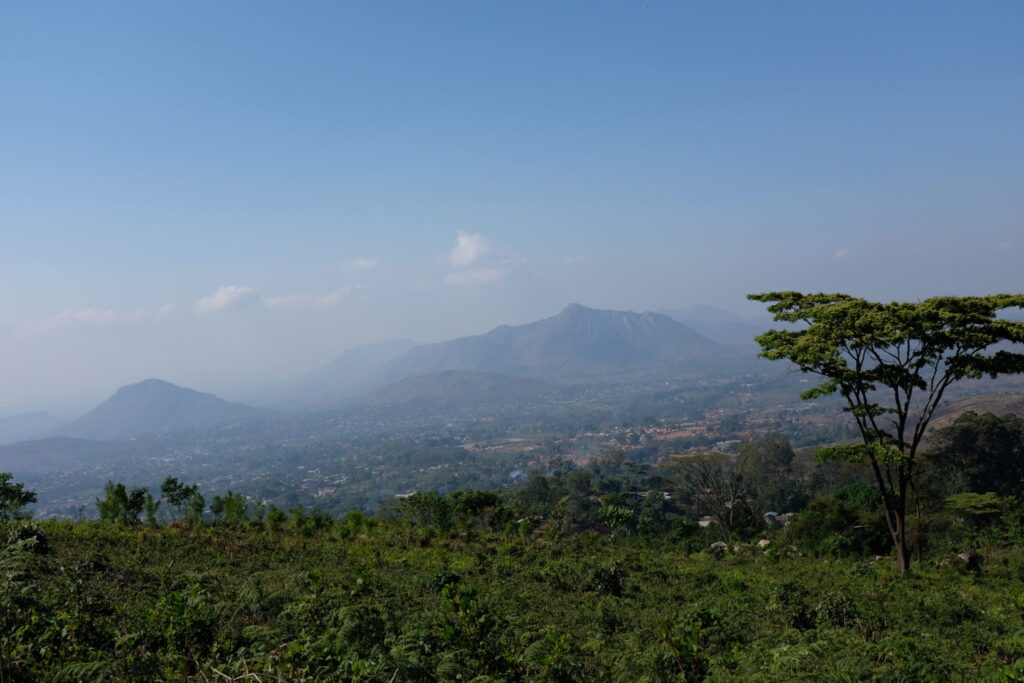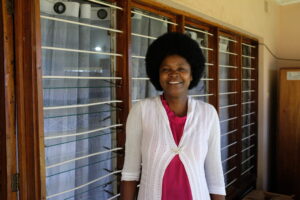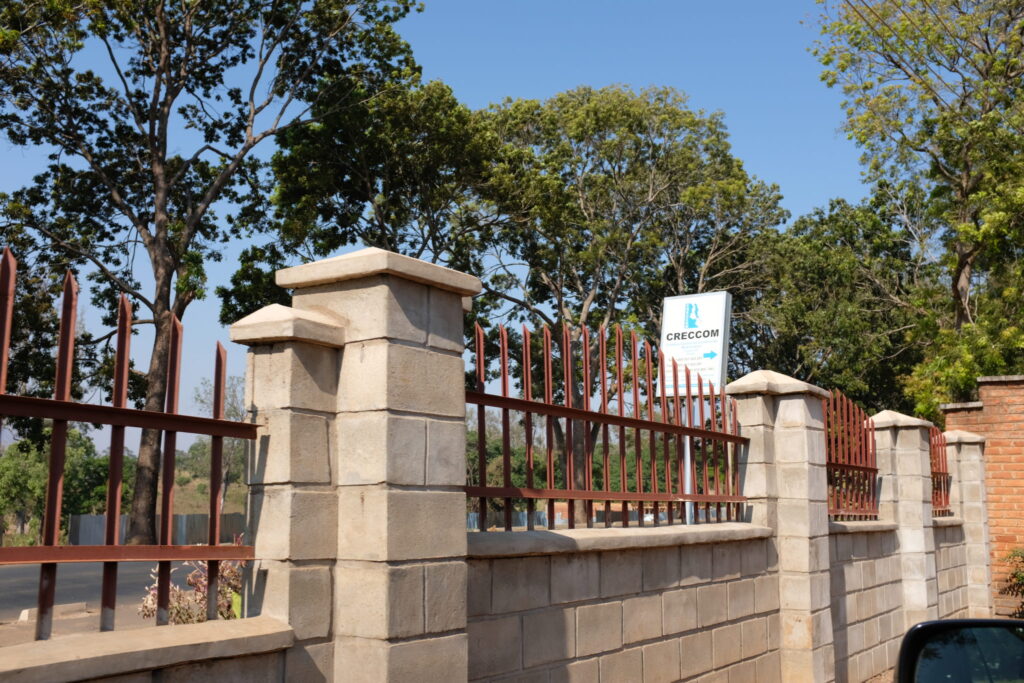This story is part of Counterpart’s 2018 Partner Highlight series from Malawi
After a bumpy five-hour drive from Lilongwe, the capital of Malawi, over dusty dirt roads, I watched as the sun set over the Zomba Plateau, with its sweeping views of the forests and mountains that dot the landscape of southern Malawi. Nestled at the bottom of the mountain in Zomba town sits the offices of the Creative Center for Community Mobilization, or CRECCOM, and its Executive Director, Madalo Samati. Centrally located right off Zomba’s main drag, my driver enters through the main gate, drives over an empty lot, and passes through a second gate before parking in front of CRECCOM’s rambling one story blue and white ranch-style office.

An elegant woman with a warm charm about her, I had first met Madalo a week prior in Lilongwe when she opened the first session of Counterpart’s annual Partners Meeting with an emotional rendition of Malawi’s national anthem. Madalo’s quiet confidence and passion for helping to make Malawi stronger and more resilient is evident the second you meet her.
 Madalo has worked for CRECCOM since its beginning in the early 1990’s, when the organization evolved out of a USAID-funded girls literacy program, where she was a researcher and theater performer in her first job right out of school. When the current iteration of the organization launched in 1999, they chose to focus on improving gender equality, policy, and infrastructure in Malawi – and invited Madalo to be a part of the inaugural staff. In her office, Madalo reminisces about the early days, sharing that this work and CRECCOM “changed [her] destiny.”
Madalo has worked for CRECCOM since its beginning in the early 1990’s, when the organization evolved out of a USAID-funded girls literacy program, where she was a researcher and theater performer in her first job right out of school. When the current iteration of the organization launched in 1999, they chose to focus on improving gender equality, policy, and infrastructure in Malawi – and invited Madalo to be a part of the inaugural staff. In her office, Madalo reminisces about the early days, sharing that this work and CRECCOM “changed [her] destiny.”
Despite their growth into a nation-wide organization over the past 20 years, CRECCOM’s dedication to local ownership – similar to that of Counterpart – has never wavered. According to Madalo, CRECCOM strives to create a “conducive environment for local initiatives by local people, that are cost effective and supported by local ownership.” Their focus is on working with poor, rural Malawians and emphasizing behavior change around improved access to education, female empowerment, social accountability, health, and climate change.
CRECCOM has worked with Counterpart since 2005 through the USAID-funded Strengthening the Efforts of Partners (STEPS) program. As Madalo tells me, while they had tried similar partnerships before, her work with STEPS has uniquely impacted CRECCOM: “We have done two capacity building projects before, but this effort [with Counterpart] has completely transformed our organization.” As Madalo and her staff share, Counterpart helped bring the right approach, methodologies, tools, and a supportive environment to CRECCOM. At the beginning of the partnership, STEPS conducted an evaluation of CRECCOM’s strengths (community mobilization and trust of local leadership) and weaknesses (marketing and senior leadership/Board of Directors), and tailored trainings specifically to these needs and CRECCOM’s unique context and programs. Over the past four years, Counterpart and CRECCOM staff have gotten to know each other, building strong relationships as partners, colleagues, and friends. Madalo sums up the value of this partnership succinctly: “We are changed forever.”
This self-evaluation process gave CRECCOM a new awareness of their gaps – some new, some obvious – but they were “in denial” before. “Now that we have a strong footing and our ambitions just keep growing,” Madalo says. Prior to their partnership with Counterpart, CRECCOM had struggled to get support from their board and lacked a commitment from staff and leadership about the direction of their five-year plan. Now, with training on how to best utilize their board and make sure that the right staff is in place to help CRECCOM grow and achieve its goals, the Board has not only signed off on the five year plan that Madalo championed, but now they are working together to develop a 20-year strategic plan: an aspirational tome that will guide the direction of efforts for decades to come.

That empty lot we drove through between the two gates of CRECCOM’s office? Madalo tells me proudly that they recently purchased that land and will be breaking ground later this month on a new training facility so they can share their work with other community leaders throughout the region. With a smile, Madalo shares that this expansion never would have been possible without their partnership with Counterpart. “Counterpart has given us this vision,” she tells me, clasping my hand, “and now we can strive for more.”
With generous support from the United States Agency for International Development (USAID), Counterpart International is working with more than 30 partners across Malawi, providing training and capacity building to strengthen local organizations and their ability to partner with communities and government leaders. Together with our partners, we strive to build a stronger Malawi by improving access to education, health care, environmental protection, and more. In the Fall of 2018, Alexandra Frank, Counterpart’s Senior Communications Manager, traveled to Malawi to visit a variety of our Supporting the Efforts of Partners program sites, and hear stories from program beneficiaries and partners throughout Malawi.




